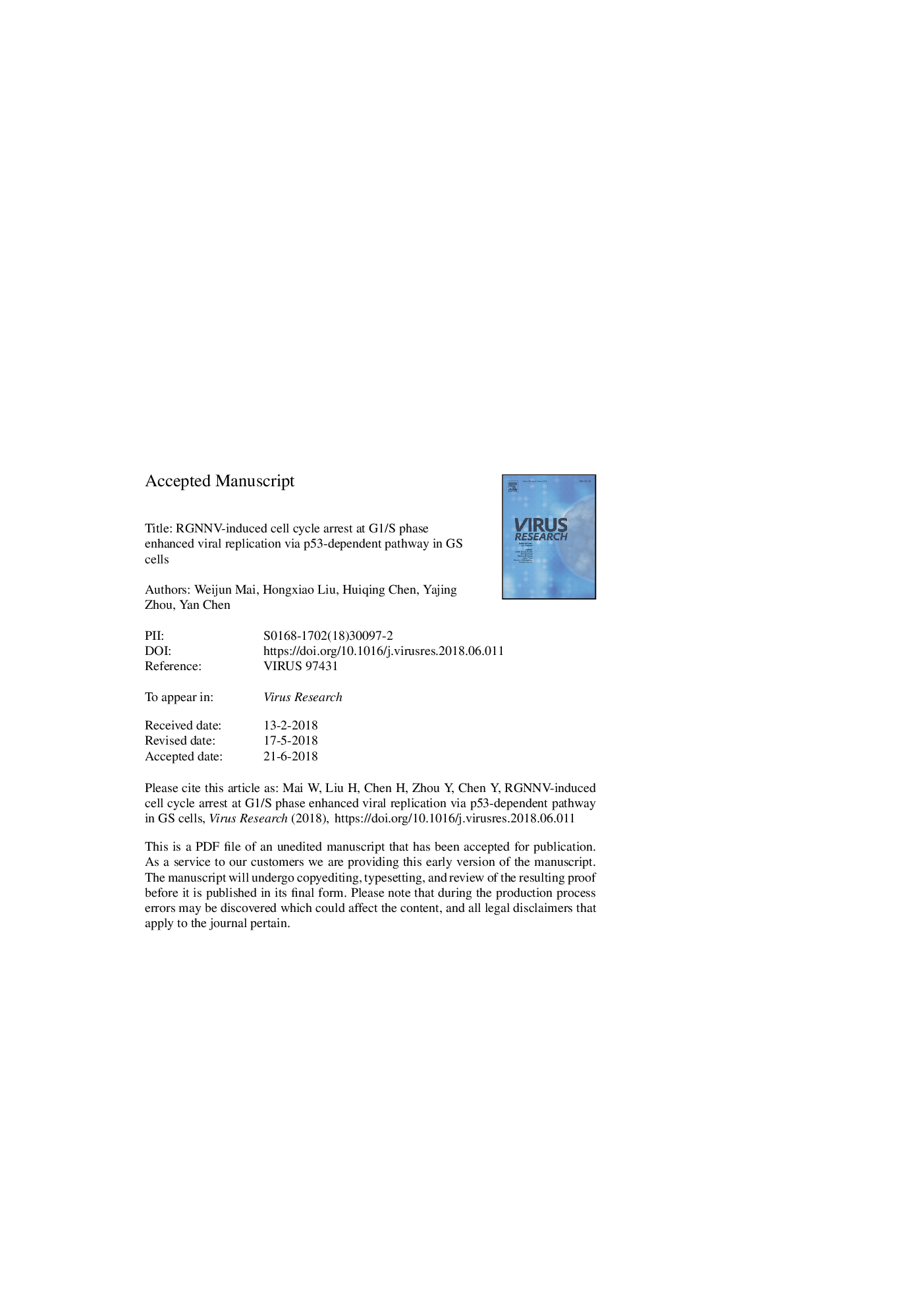| Article ID | Journal | Published Year | Pages | File Type |
|---|---|---|---|---|
| 10031812 | Virus Research | 2018 | 47 Pages |
Abstract
Nervous necrosis virus (NNV) is a ubiquitous pathogen in the aquaculture worldwide. Little is known about the relationship between NNV virus and host cells. Our studies showed that RGNNV infection could induce cell cycle arrest via activation of p53 signaling in cultured host cells. Infection of RGNNV redistributed NPM1, stabilized p53 and inhibited cell proliferation by inducing G1 arrest. RGNNV infection also led to phosphorylation and accumulation of p53 in a time-dependent manner. Furthermore, RGNNV infection upregulated cyclin-dependent kinase inhibitor 1â¯A (p21) and downregulated cyclin E and cyclin-dependent kinase 2 (CDK2). The expression of genes in the p53 pathway did not change significantly after p53 knockdown by pifithrin-α during RGNNV infection. However, NPM1 knockdown could abrogate RGNNV-induced cell proliferation inhibition, activation of p53 signaling and cell cycle arrest. In addition, RGNNV infection of the cells synchronized in various stages of cell cycle showed that viral genomic RNA and virus titer were higher in the cells released from G1 phase- or S phase-synchronized cells than that in the cells released from the G2 phase-synchronized or asynchronous cells after 18â¯h p.i. Therefore, our study reveals that RGNNV infection induces the p53-dependent pathway, resulting in a cell cycle arrest at G1 phase in host cells, which might provide a favorable condition for viral replication.
Related Topics
Life Sciences
Immunology and Microbiology
Virology
Authors
Weijun Mai, Hongxiao Liu, Huiqing Chen, Yajing Zhou, Yan Chen,
